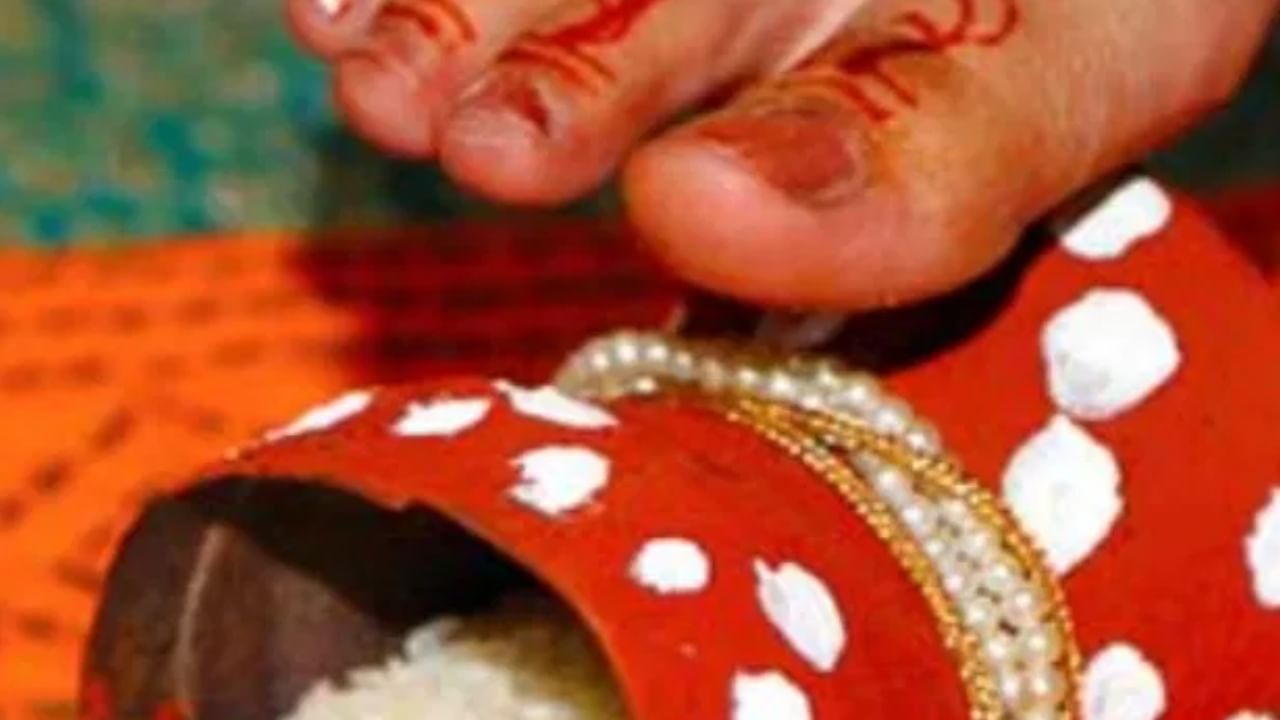Custom of dropping an urn of rice at the time of house entry
Hindu Wedding Rituals: Once again the marriage season has started. Bands, decorated pavilions and the splendor of wedding processions can be seen all around. November to February is considered the time for marriage. In Hindu religion, marriage is not just a union of two people, but many traditions and customs are seen during marriage. There is definitely some meaning behind every ritual performed in a marriage.
These customs and rituals include dropping an urn of rice by the bride while entering the house after marriage. In this ritual of Griha Pravesh, the bride drops a pot of rice from her feet and enters her in-laws’ house, but do you know why the bride does this at the time of Griha Pravesh? Let us know the special reason behind the bride doing this.
tradition of throwing rice at house warming ceremony
According to tradition, when the bride arrives at her in-laws’ house, she is entering a new place as well as beginning a new life, new responsibilities and new relationships. The most important ritual performed on this occasion is the dropping of an urn filled with rice by the bride. This is a sign of completion of the house. Just as Goddess Lakshmi comes into the house, similarly the new bride brings auspiciousness and prosperity to the family.
Symbol of Goddess Lakshmi
In this ritual, rice and Kalash are symbols of prosperity and wealth. This is considered a symbol of the fact that happiness and prosperity should never end in the house where the new bride enters. Dropping the rice urn is not just a ritual, but it is also a way of paying respect to the new bride as Grihalakshmi.
Not only this, this tradition of Hindu religion has been going on for centuries. In this the new bride drops the rice urn with her right foot. Then enters the house.
Also read: Shri Krishna: How did Lord Shri Krishna die? This curse of Gandhari became the reason
(Disclaimer: The information given in this news is based on religious beliefs and general information. TV9 Bharatvarsha does not confirm this.)
